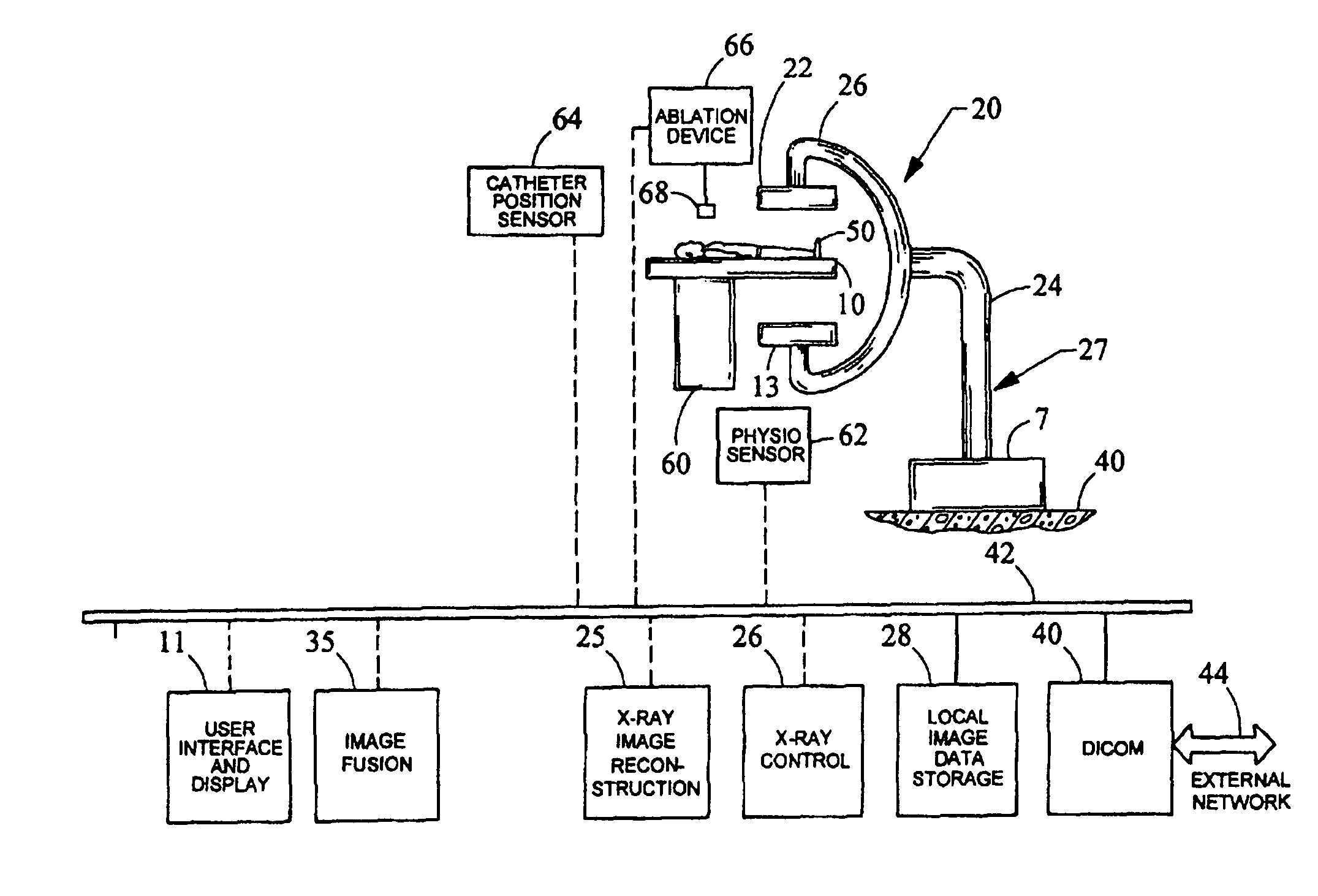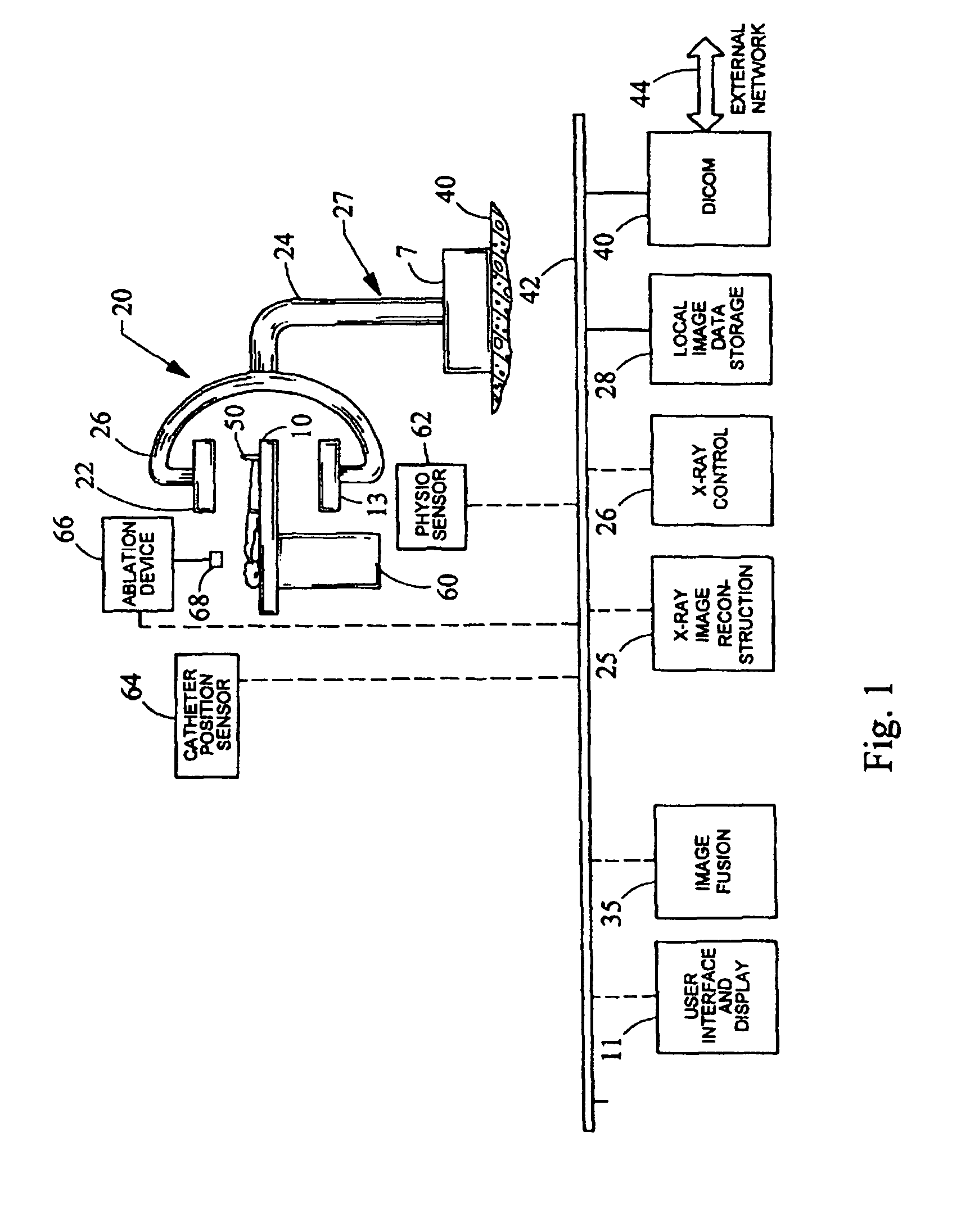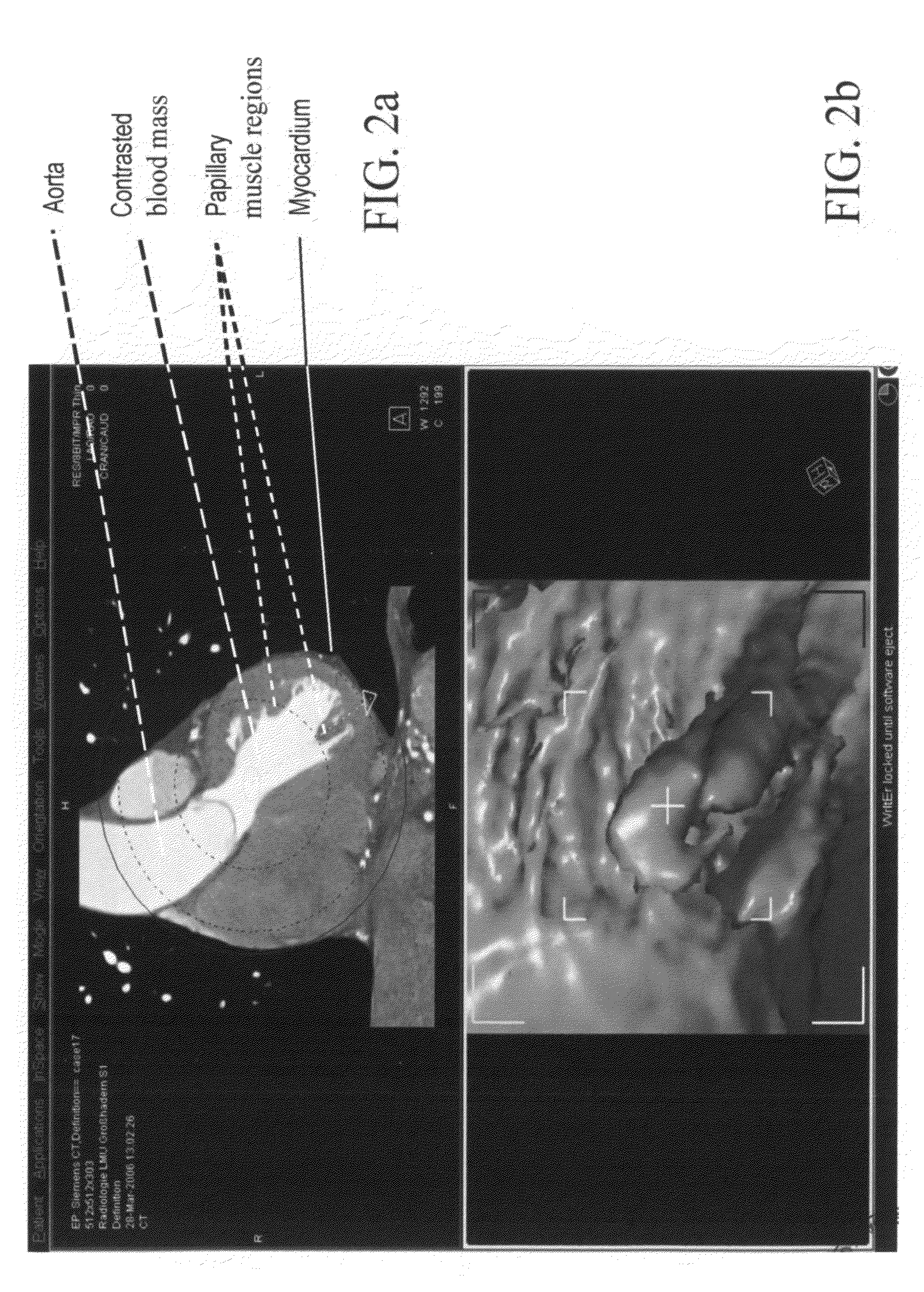Method and system for performing ablation to treat ventricular tachycardia
a technology of ventricular tachycardia and ablation, which is applied in the field of improving the medical treatment of patients using ablation therapy, can solve the problems of high radiation dose to patients, inadequate high success rate, and defective pumping output of the hear
- Summary
- Abstract
- Description
- Claims
- Application Information
AI Technical Summary
Benefits of technology
Problems solved by technology
Method used
Image
Examples
Embodiment Construction
[0020]Exemplary embodiments may be better understood with reference to the drawings. Like numbered elements in the same or different drawings perform equivalent functions.
[0021]In the interest of clarity, not all the routine features of the examples herein are described. It will of course be appreciated that in the development of any such actual implementation, numerous implementation-specific decisions must be made to achieve a developers' specific goals, such as consideration of system and business related constraints, and that these goals will vary from one implementation to another.
[0022]The combination of hardware and software to accomplish the tasks described herein may be termed a system. The instructions for implementing processes of the system may be provided on computer-readable storage media or memories, such as a cache, buffer, RAM, removable media, hard drive or other computer readable storage media. Computer readable storage media include various types of volatile and ...
PUM
 Login to View More
Login to View More Abstract
Description
Claims
Application Information
 Login to View More
Login to View More - R&D
- Intellectual Property
- Life Sciences
- Materials
- Tech Scout
- Unparalleled Data Quality
- Higher Quality Content
- 60% Fewer Hallucinations
Browse by: Latest US Patents, China's latest patents, Technical Efficacy Thesaurus, Application Domain, Technology Topic, Popular Technical Reports.
© 2025 PatSnap. All rights reserved.Legal|Privacy policy|Modern Slavery Act Transparency Statement|Sitemap|About US| Contact US: help@patsnap.com



